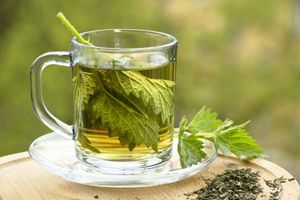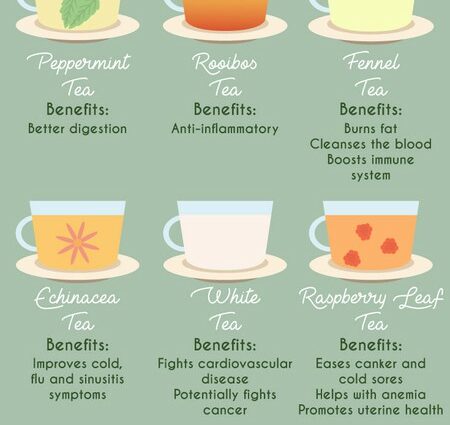Laʻau lauti: o a latou penefiti?

What is a real herbal tea?
Herbal tea is a very accessible way to enjoy the benefits of herbal medicine. It consists in extracting aromatic compounds from plants by different preparation methods such as maceration, decoction or infusion of plant material (fresh or dried flowers, stems, roots, leaves) generally in hot water.
As long as the plant is of good quality, herbal tea is a fairly reliable therapeutic tool. Whether the plant material is fresh or dried, cells know how to maintain their integrity in the absence of water: a process they use in particular in anticipation of periods of drought. They therefore retain their active ingredient content for a long period of time and protect them from mechanisms liable to alter them, such as oxidation. To be convinced of this, just crumple lavender flowers or a dried mint leaf between your fingers and smell the aromas that emerge: these are the volatile principles (and in particular essential oils). The roots, stems and seeds also preserve them better than the leaves and flowers.
Herbal tea can be prepared from fresh or dried plants. Most choose loose herbs or packets sold commercially because they are more easily accessible.
La maceration consists of soaking the plant material in cold water for several hours. LEfusi consists of pouring hot water over the plant material and allowing it to soak for a few minutes. La decoction consists of boiling the water in which the plant material rests for a few minutes. |
How long can I keep my herbal tea?
The lifespan of a herbal tea depends both on how the plant is processed (crushed, pulled up) and how it is stored. The more a herb is crushed, the less it will keep because it will lose more oils (due to a larger exposed surface). Herbs stored in airtight containers will keep longer than herbs sold in sachets. Even if their flavors can stay for months, the medicinal properties are due to the oils whose content decreases over time. This is why it is recommended to store herbs in sachets for a maximum of two to three months, and whole herbs in an airtight container for about a year.
Certain plants are particularly used in herbal teas due to their supposed medicinal properties. Facilitate digestion, improve sleep, calm anxiety … Each would have an effect specific to its composition. If the researchers struggle to demonstrate these effects with certainty, they continue their examination, intrigued by their common prescription around the world. 5 herbal teas caught our attention because of their low side effects and the existing scientific literature on them.










